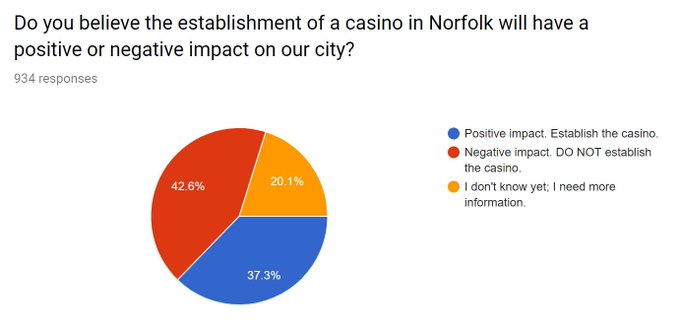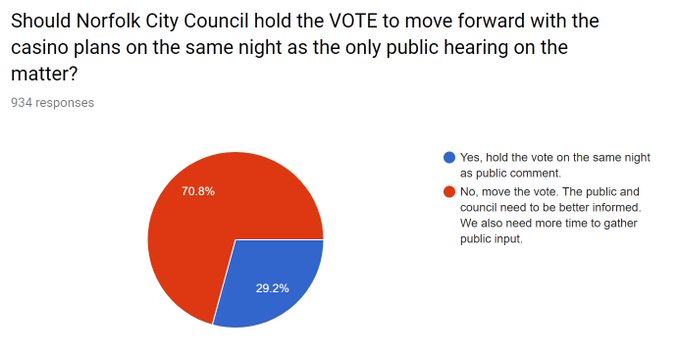NORFOLK, Va. (WAVY) — While members of Norfolk’s civic leagues seem fairly split on the proposed $700 million Pamunkey Indian casino, a majority want more time before the city makes any big decisions.
And one could come as quickly as Tuesday night, when city council votes on whether to tentatively transfer land for the casino to the Native American tribe, only two weeks after the terms of the deal were made public.
The vote is set to follow a public hearing on the issue starting at 7 p.m. at City Hall, but civic leagues and city leaders such as City Councilwoman Andrea McClellan have said that lone public comment session is far from enough.
“We hold public hearings on a regular basis for far smaller issues that are out to civic leagues and talking with everyone and getting more information. We need to be doing that with this project as well,” said McClellan, who has also called for an economic impact study on the issue.
The Larchmont Edgewater Civic League sent out the survey below to fellow civic leagues, in an attempt to gather some public data on the casino deal. The city has yet to issue its own survey on the matter.

Of the 934 polled, nearly 71% of respondents said the vote on the land transfer needs to be moved to a later date.

Also 37.3% have said they’d be in support of having the casino, with 20% saying they need more information on the matter. 42.6% don’t approve of the casino.
Norfolk is looking to ultimately sell 13.25 acres of land next to Harbor Park on the Elizabeth River to the tribe for $10 million, for market value of $725,000 an acre. On it, the Pamunkeys would build a casino with about 4,000 slot machines and 225 table games, restaurants, hotel, a 750-seat entertainment facility, spa and a promenade along the waterfront.
The city would get 4 percent of all gambling revenue (estimated at $5 million-plus annually), and the tribe would have to pay for flood mitigation and other infrastructure.
Tuesday’s vote wouldn’t immediately give the Pamunkey Tribe the land outright.
The plan includes having the tribe pay $100,000 a year for up to 5 years to essentially reserve the land while things develop in the General Assembly and at the federal level.
This story will be updated.










































































































